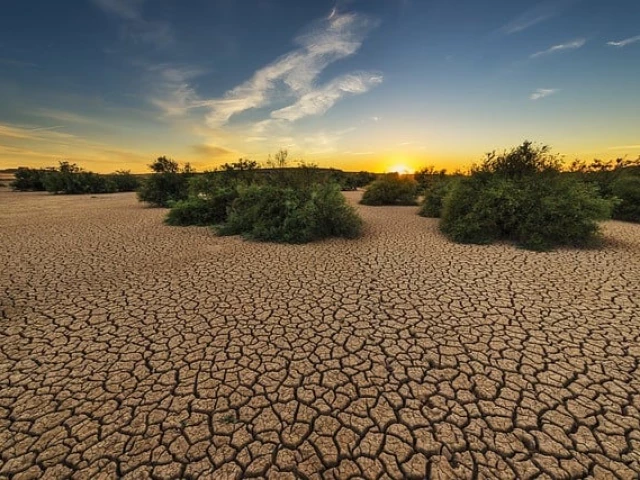During a seminar organized by the Department of Soil Science, the faculty of crop production at Sindh Agriculture University, Tandojam, national and international experts warned that Pakistan’s soil health is worsening at an alarming pace due to excessive and indiscrimination of chemical fertilizer. They underlined the urgent need for regenerative farming, restoration of biodiversity and compost -based solutions to ensure sustainable agriculture for future generations
This last month, heavy monsoon rains have swept through the country and caused floods. These floods add a complex layer to the Earth’s health crisis. “After flooding, the agricultural fields in many areas are buried under layers of sand, sediments and silt, while the fertile soil is washed away,” Dr. Babar Shahbaz, Director of the Institute of Agricultural Extension, Education and Rural Development at the University of Agriculture, Faisalabad. “Long -term water count also destroys soil microbes and organic matter”.
Shahbaz warned that farmers’ dependence on excessive chemical fertilizer without soil testing as well as combustion of crop residues striping fields of vital nutrients. “Continuous cultivation of nutrient -intensive crops such as wheat, rice and corn without rotation has exhausted essential nutrients in the soil,” he said. Interestingly, the antidote for this can lie in the very accident we often demonize. The floods carry particles that are essential to the Earth’s nutritional profile. “When deposited on flooding plains, these sediments can enrich soil with fresh nutrients such as potassium, magnesium, calcium and micronutrients,” said Professor Dr. Altaf Siyal, acting principal at Sindh Agriculture University, Tandojam. “In some cases, organic substances from overdue plants or animal stomachs add in flooding water humus, which improves soil fertility in the short term.”
Floods act as a natural phenomenon that revitalizes the soil. “Floods deposits fine alluvium that replenishes the soil profile,” added Siyal. “They can also charge groundwater supplies and allow the soil well hydrated to the next pruning cycle”. This forces us to consider the fact that flooding itself is not in itself devastating to the natural world. If there are no residents that are constructed over flooding sites, the destruction is a matter of course. These areas have been exposed to flooding for centuries and have maintained their fertility.
The causes of soil degradation are Multifold. “Soil erosion, bad irrigation practice, salinity, water counting, overgrazing and unsustainable agricultural practice are rapidly degrading Pakistan’s soil,” SHAHBAZ saidBoth. Siyal and Shahbaz emphasized that burning rice crops leftovers in Punjab and excessive irrigation in Sindh exacerbate the problem. Shahbaz mentioned that combustion of residues impairs soil health by depleting organic matter and essential nutrients and by killing beneficial soil microbes.
“Healthy soil is the lifeblood of higher crop yields, food safety, livelihood and ecosystem services. If the soil deteriorates, Pakistan’s capacity to feed its growing population will have a serious risk,” Siyal said.
Read: Experts call for switching to regenerative agriculture
The loss in soil quality is not just an environmental consideration. “Pakistan loses an estimated 1.5-2% of his agricultural table annually due to land deterioration,” said Siyal. “In Sindh alone, more than 2 million hectares of salinity and sodicity are affected and require immediate rehabilitation.”
Siyal connected poor land management directly to financial losses. As for solutions, Shahbaz said: “We need to increase the use of bio fertilizer, farm fertilizer, compost and adopt diversification of crops, minimum processing and high-efficiency irrigation systems”.

Siyal repeated it urgently to move toward regenerative practice. “Regenerative Agriculture offers sustainable solutions to rebuild organic matter with soil, improve nutrient cycling and restore ecology and microbial biodiversity,” he said.
With experts calling for immediate action, the challenge now lies in how quickly Pakistan can turn against sustainable practice. The choice between short -term corrections and prolonged resilience may well decide the future of the country’s land and its ability to feed generations that are coming.



